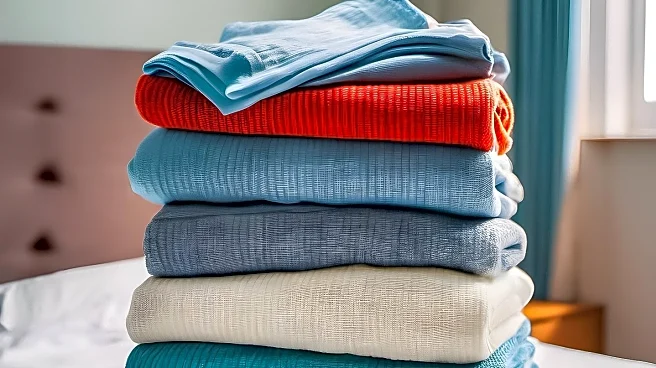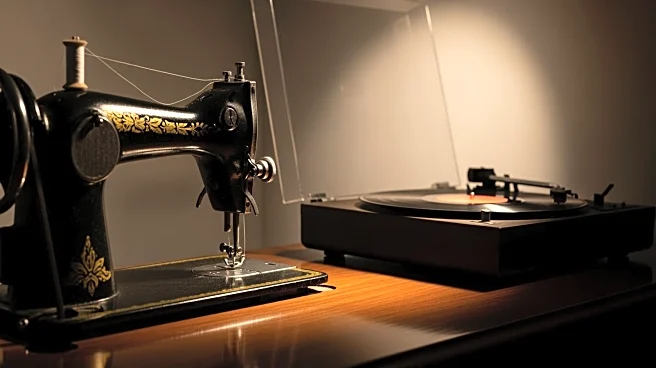What's Happening?
Wayfair is recognized for its range of plush, cozy blankets that are machine-washable, with prices ranging from $13 to $36. These blankets have garnered positive reviews from customers who appreciate their softness, comfort, and ease of care. Many reviewers have expressed their satisfaction with the blankets, noting their affordability and the quality that remains intact even after multiple washes. The blankets are available in various sizes and colors, including checkered and leopard print styles, making them a versatile choice for different preferences and home decors.
Why It's Important?
The popularity of Wayfair's machine-washable blankets highlights a growing consumer demand for affordable, high-quality home goods that offer both comfort and practicality. This trend reflects a broader shift in consumer behavior towards products that combine aesthetic appeal with functional benefits. For Wayfair, this positive reception can enhance brand loyalty and drive sales, particularly as consumers increasingly prioritize convenience and value in their purchasing decisions. The success of these blankets also underscores the importance of customer reviews in influencing purchasing behavior, as positive feedback can significantly boost a product's marketability.
What's Next?
As Wayfair continues to receive positive feedback for its plush blankets, the company may explore expanding its product line to include more variations in design and material. Additionally, the success of these blankets could encourage Wayfair to apply similar strategies to other product categories, focusing on affordability and quality. The company might also consider leveraging customer reviews more strategically in its marketing efforts to further enhance consumer trust and engagement.
Beyond the Headlines
The emphasis on machine-washable and durable home products reflects a cultural shift towards sustainable and low-maintenance living. Consumers are increasingly seeking products that not only meet their immediate needs but also align with their lifestyle choices, such as reducing environmental impact through durable goods. This trend could influence other retailers to prioritize similar product attributes, potentially leading to a broader industry shift towards sustainable and consumer-friendly home goods.









